A historic moment for Korean rugby
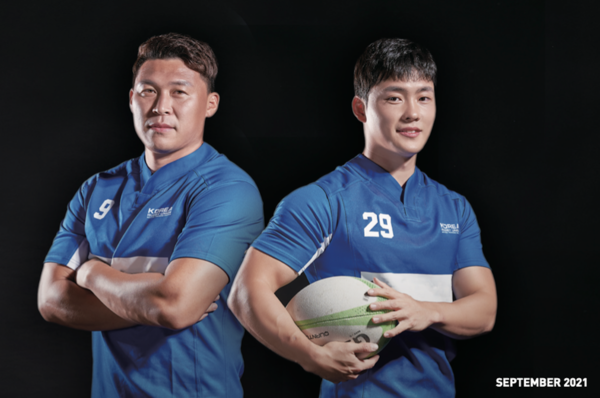
FOR THE first time in history, South Korea’s national men’s rugby sevens team participated in this year’s Tokyo Olympics. Though rugby has been present in South Korea for 98 years, it still is an uncommon sport to many Koreans. Last November, nevertheless, the Korean rugby team successfully jumped over the hurdle—making its way to the Olympics, with a slim victory in the Asian qualifying round. Han Kun-kyu (Class of ’05, Dept. of Physical Education) and Jang Jeong-min (Class of ’13, Dept. of Sport Industry Studies), former Yonsei rugby players, were part of this momentous journey. In an exclusive interview with The Yonsei Annals, they shared their experiences about the Tokyo Olympics, and what drives their passion for rugby.
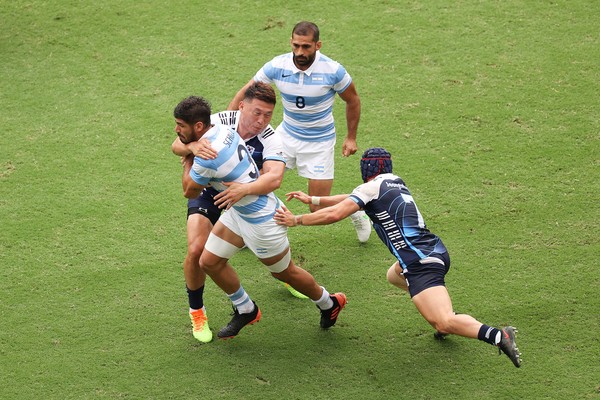
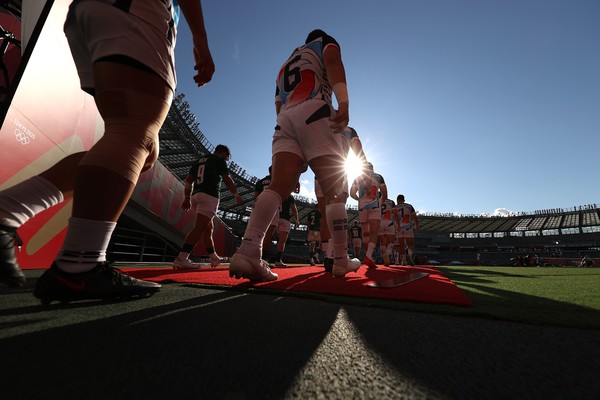
How they met rugby
Annals: How were you introduced to rugby? What were your first impressions of the sport?
Han: A high school gym teacher, who was also a former rugby player, recommended that I learn rugby after watching me play soccer in middle school by chance. I knew literally nothing about rugby, so I asked him what it was. “It is just kind of a ball game,” he told me. So, I said “yes.” That was how I began playing rugby. It felt completely different from other sports I had known back then. Rugby was a fresh shock; the physical competition was really thrilling.
Jang: I was in middle school when I first came across rugby. At the time I found my life to be very tedious. I was itching to play sports to relieve the boredom, so I joined my middle school rugby club. I remember how scary the senior players looked back then when I was a trainee. Watching them exchange blows made me think that rugby was a very manly sport.
Annals: What made you pursue rugby as a profession?
Han: I made up my mind when I was scouted into the Korea Armed Forces Athletic Corps as an athlete while I was a senior in college. I thought, “I already started. Why not keep playing?” Even though I had some other options as well, including becoming a gym teacher, I decided to continue my career in rugby. I wanted to be a “successful” rugby player.
Jang: It was not hard for me to choose rugby as a profession. When I was in high school, I heard the news that rugby was going to become an official Olympic sport again. Since then, I started to dream of going to the Olympics as a rugby player. I kept playing rugby with this goal in mind.
As rugby players at Yonsei
Annals: You both started off your career as Yonsei rugby players back in college. Is there a particularly interesting moment from your time at Yonsei?
Han: The funny thing is that I initially wanted to go to Korea University instead of Yonsei. All my close seniors and even my role model were at Korea University. Not to mention the fact that Korea University had defeated Yonsei University in rugby several times in a row back then. But somehow, I ended up coming to Yonsei. At first, I felt uncomfortable because there was nobody I knew. But as time went by, I was glad to be at Yonsei. I was able to meet the person who would become the coach for the national team, as my coach at Yonsei. I liked his style of leadership. I definitely grew during my time here and also became a member of the national team when I was a freshman. I am more than happy that I came to Yonsei.
Jang: I recall the Yon-ko Games. When it comes to the Yon-ko Games, we all get serious, especially as we get closer to the games. The senior players and coaches create a tense atmosphere during training sessions a month out from the games. I still remember the scene of the rugby games vividly—there were a lot of spectators. In my first and second years, we lost the rugby competitions with Korea University, we all went back home with bitterness. But in my junior and senior years, after we finally defeated Korea University, I remember us celebrating the victory with alcohol at the afterparty. It was very interesting to watch the “train games[1]” on the streets of Sinchon.
Annals: I imagine that you were very preoccupied with rugby during college. If you could go back to when you were in college, is there anything you would like to do?
Han: There are a lot of things that come to mind. I wish I could have gone to Membership Training (MT)[2] because I never had a chance to do something like that. I also want to take part in team assignments, working together with other students—preparing for presentations, and so on. During college, there were a lot of things that I couldn’t try.
Jang: I was always occupied with rugby during college, so there was not much time for me to participate in so-called “normal” college activities like team projects or school clubs. So, if I could get a second chance to go back to college, I want to make more friends in different departments and majors. I used to only hang out with other rugby players, so it would be fun to interact with different friends in other fields.
Annals: Were there any slumps during your rugby career?
Han: When I was a freshman in college, I had a big slump. It was right after the spring league had ended. I felt so trapped suddenly. I had been participating in every single competition ever since I entered college, and some of my upperclassmen didn’t really like me because of that. With the pressure from regular competition once a week and being the object of hatred, I ended up ditching school. Eventually, I was caught by the coach and had no choice but to return. After having a deep conversation with the coach, I braced myself again to concentrate on the sport I love.
Jang: I had several slumps until now. Every time this happened, I had “external concerns” besides rugby. Worrying about those things hindered me from solely focusing on working out and rugby. But eventually, I made more effort to overcome those distractions, to work out harder than anybody else.
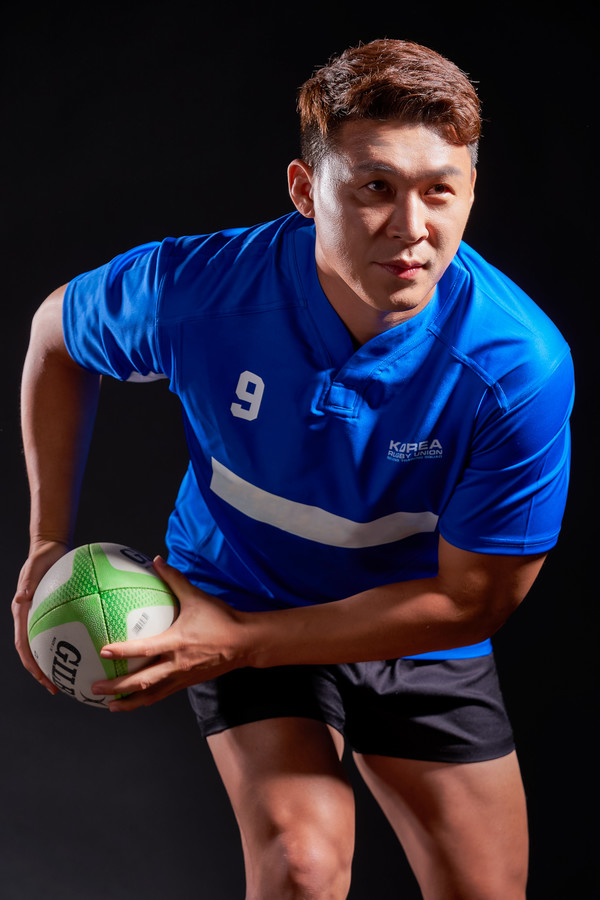
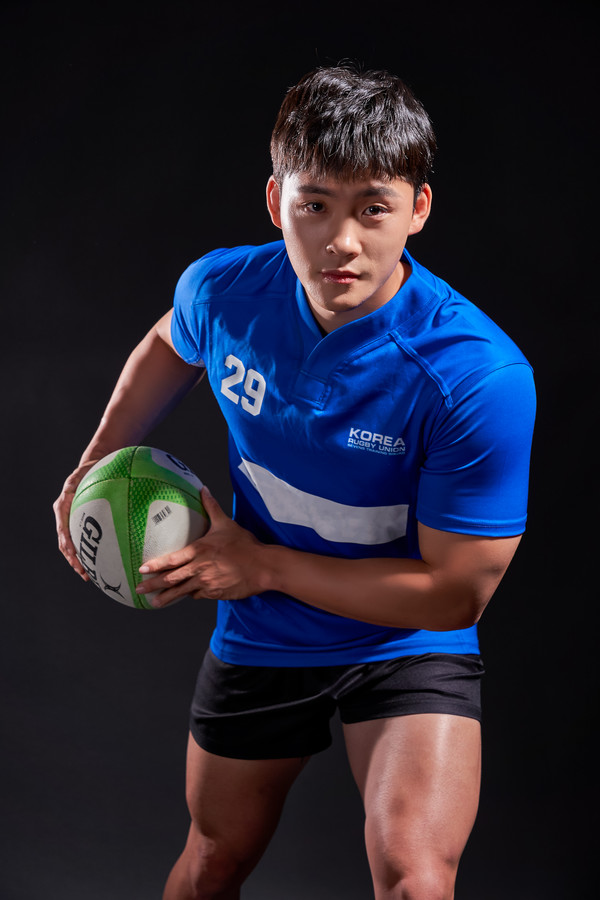
2020 Tokyo Olympics and the future of Korean rugby
Annals: Last November, the Korean national team qualified for the Olympics, beating China and Hong Kong at the semifinal and the final competition respectively. How did you feel when the team finally made its way to the Olympics for the very first time?
Han: It is hard to express in words the emotions we felt when we took the victory. We all embraced, telling one another that we all worked hard together and finally managed to do it. I think it is the most unforgettable moment in my life so far and will likely remain so forever.
Jang: I felt really good. The Olympics had always been my dream, motivating me throughout difficult times. When we came from behind to beat China[3], I thought that I had come closer to my dream goal, with the qualification to the Tokyo Olympics! We all got very emotional, hugging each other and crying.
Annals: Although the Korean team lost every match, many say that qualifying for the Olympics itself was a historic moment. How did competing on the world stage at that level for the first time feel?
Han: We were outclassed by the teams we had to compete against. Teams from other countries, such as New Zealand, go on world tours to compete with one another at the highest level, while we hardly participate in global competitions—barely even once a year. Hence, I think it was a worthwhile experience for us to compete on a global scale for the first time with more experienced teams. It surely will become a steppingstone for the development of rugby in Korea. Even so, many of us still felt like we should have done better, given that our goal was to win at least one match.
Jang: I think playing against teams we used to watch on Youtube was very meaningful. We didn’t expect to even score a single try[4]. We were happy that we actually confronted these powerful teams and even scored a goal. However, one regretful thing is that we did not manage to win a single game.
Annals: Considering that “cooperation” is one of the main spirits of rugby, how was the teamwork of the seven-member national rugby team?
Han: I do not actually talk much on the field. I just try to say things when I really have to, such as giving advice on things that need to be improved or corrected. Rather than leading the members in the front, I usually make an effort to lead from behind and mediate between the members to help them communicate better.
Jang: I think we all tried hard to improve our teamwork. We made a rule to always come on time whenever we practice. Anyone who comes late has to pay a fine as a punishment. Yes, I also have paid the penalty for coming late. But still, this is how we strived for better teamwork.
Annals: Were there any interesting moments that you remember from the Olympics?
Han: We sometimes were hungry even after having meals provided by the Korean Sport & Olympic Committee. At those times, we gathered with other athletes in different sports, especially with the female basketball team. It was fun eating pizza or instant curry together.
Jang: It was amazing that I could see all those popular athletes in person at the Olympics. I mean, those whom I could only see on television! Everything seemed like a dream to me, and I felt so honored. I would really like to participate in the next Olympics as well. Oh, one surprising fact was that the cardboard bed, which had been controversial around the world, was quite comfortable, for me personally.
Annals: In Korea, rugby is said to be an unfamiliar sport, rather than an unpopular one. What do you expect for the future of the sport in Korea? What do you think needs to be improved?
Han: I am glad that rugby became more known in Korea as a result of the 2020 Tokyo Olympics. I always have felt bad that a lot of people confuse rugby with American football. Even when rugby games are broadcasted, commentators are usually busy explaining the rules, rather than commentating on the game. I hope rugby could become more familiar to Koreans as a result of the Games. I also feel that there should be more teams, not only business teams but also the ones in middle schools and high schools. With a solid number of youth rugby players, I hope for a brighter future for Korean rugby.
Jang: For sure, I would like rugby to be more known to the public. That means the sport itself should be covered more in the press so that people know what it is. That also means we have to do well and have good performances and records. I think it should be a top priority to make rugby more familiar and accessible in Korea.
Annals: The Hangzhou Asian Games is right around the corner in 2022. What are your plans for the upcoming Asian Games?
Han: To be honest, I have not yet thought about the Asian Games next year. Now that I have a family with two young daughters, I have a lot of things to think about. Since the amount of experience is important in rugby, I am willing to make room for other younger players.
Jang: Winning the gold medal is our primary goal in the upcoming Asian Games. Nothing more, just the gold medal. And we will strive for that medal.
Annals: What motivates you the most as rugby players?
Han: I think my motivation could be divided into two factors. One factor was my personal desire to peak as a forward position in rugby—making great performances, winning victories, and seeking glory. The other was for my family. Ever since I got married and had two kids, I always think that every single game is for my family. I also have regrets about being away from them and not being able to take care of them because of my athletic career.
Jang: Until now, the Olympics has been my constant motivating factor. I came this far, only hoping for the Olympics itself.
Annals: Any advice you would like to give to Yonsei students?
Han: I want to advise Yonsei rugby team players, particularly. As far as I know, recently Yonsei University was defeated twice by Korea University. I bet they are suffering from low morale at this point. I want to advise them to move on from those defeats and to just work out, make efforts, and pursue victory.
Jang: I just want to advise them to enjoy college life without any regrets.
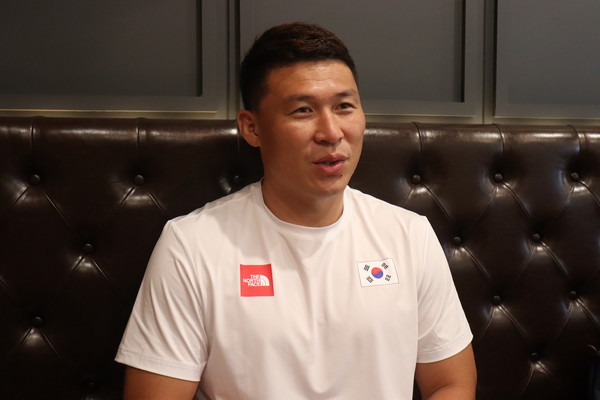
* * *
South Korea’s national rugby team not only showed us their “blood, sweat, and tears,” but also a glimpse into a better future for rugby in South Korea. A sport that was virtually unknown to South Koreans a mere few decades ago has grown to capture the imagination of an entire people. Yonseians, Han Kun-kyu and Jang Jeong-min, remind us that with enough dedication, passion, and spirit anything is possible.
[1] Train games: An event that celebrates the Yon-ko Games where students form a human train to get free food from restaurants
[2] Membership Training (MT): An overnight trip for university students in South Korea to socialize, drink, and play games
[3] At the semifinal competition with China, Korea succeeded in leveling the scores in the last 20 seconds and eventually came from behind to win when Jang scored.
[4] Try: A way of scoring points in rugby, which is to ground the ball in the opposition’s in-goal area

